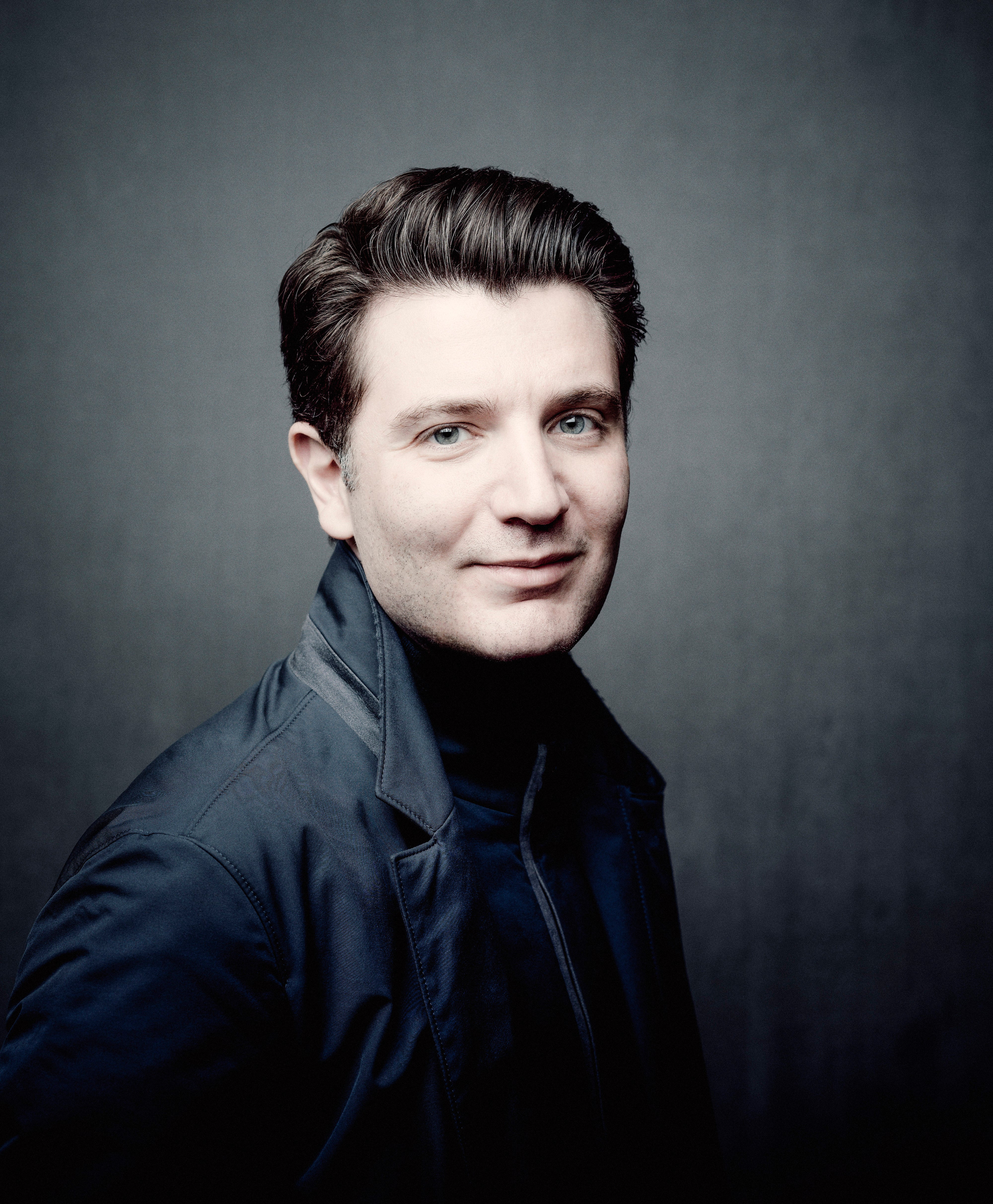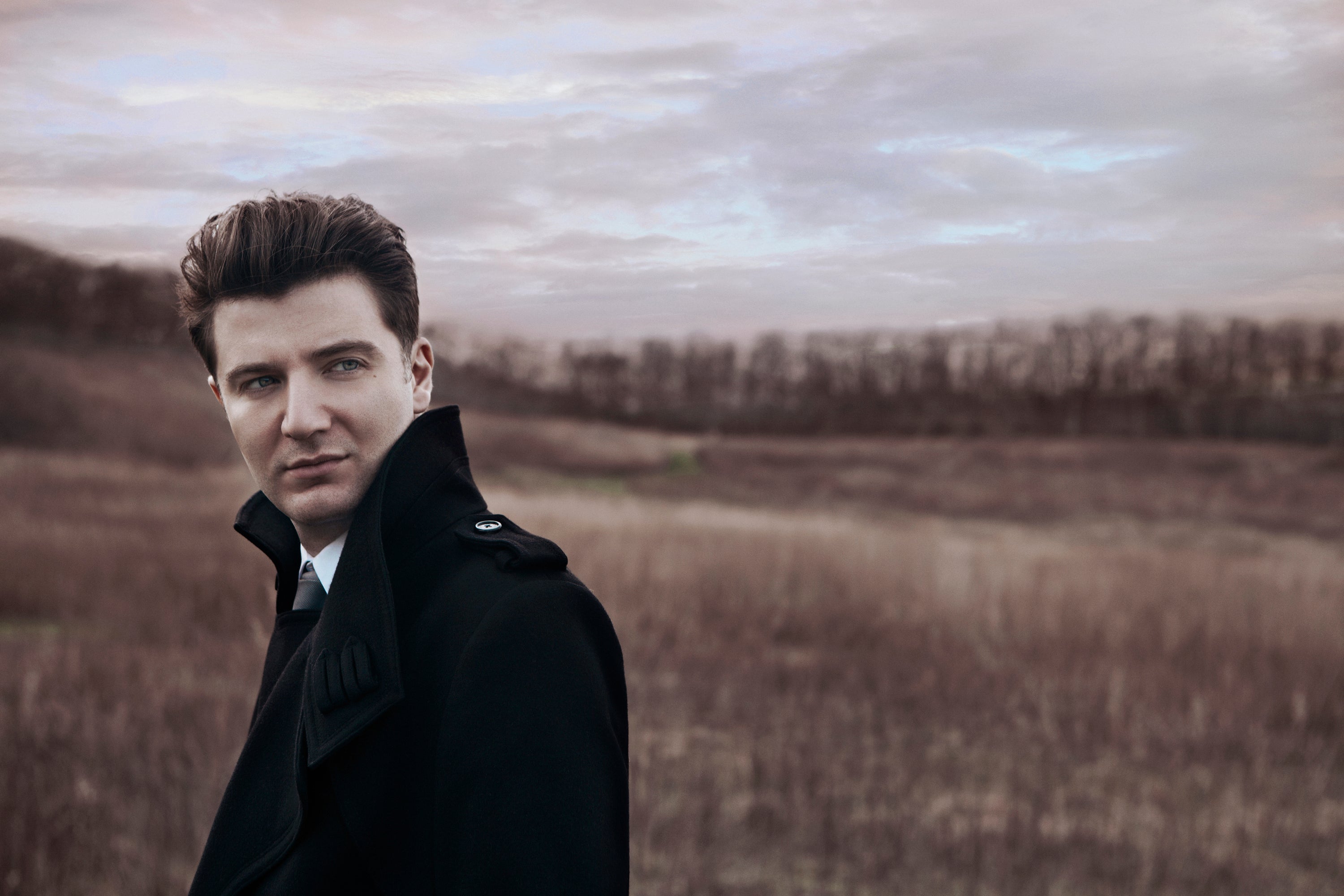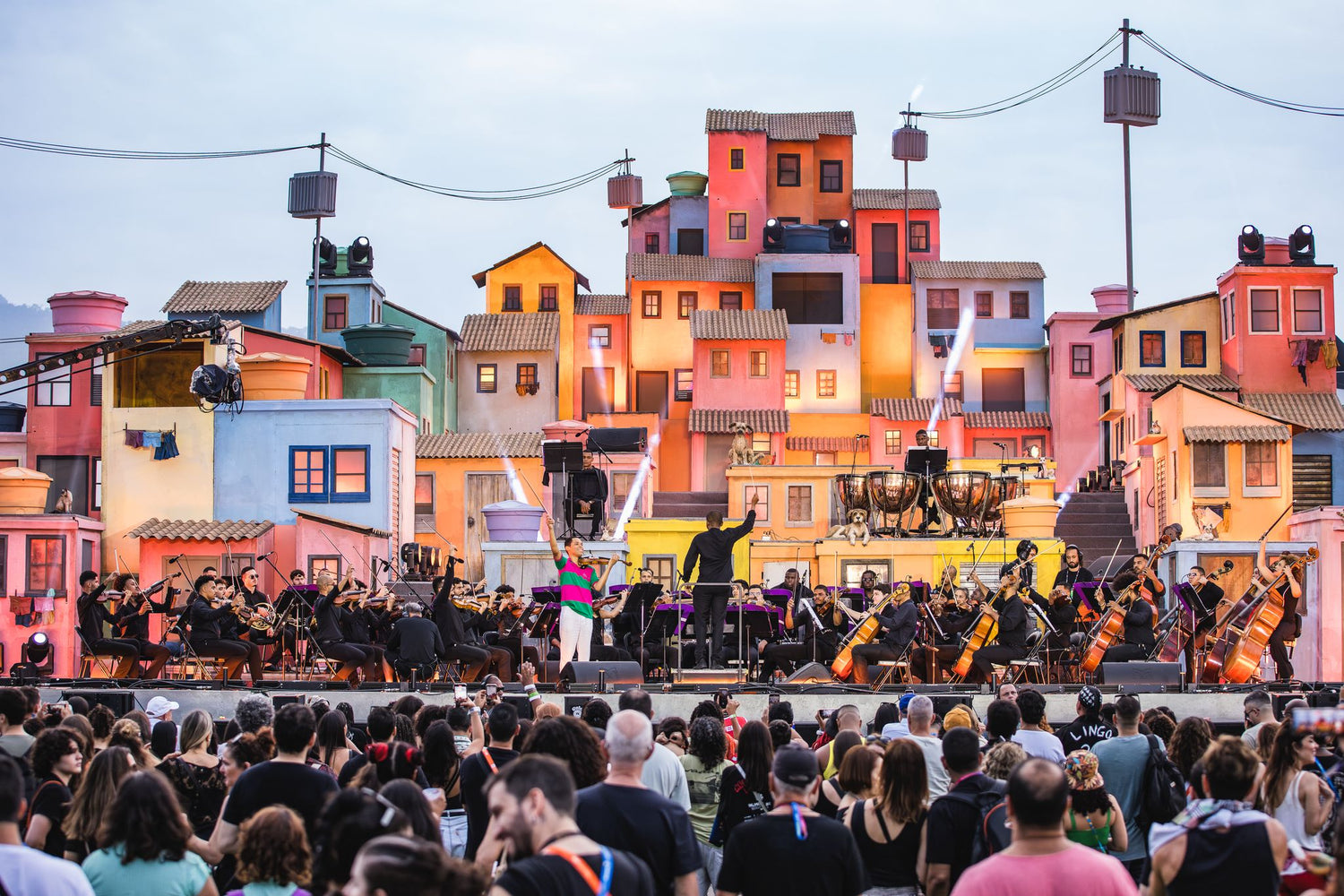A pianist from the age of seven, Alessio Bax has spent as much time at a piano bench as Han Solo has in the cockpit of the Millenium Falcon or Conan the Barbarian has swinging a sword.
The 44-year-old Italian has appeared with over 100 orchestras, including the London, Royal, and St. Petersburg Philharmonic Orchestras, the Boston, Dallas, Seattle, Sydney, and Birmingham Symphony Orchestras, and most recently, the New York Philharmonic.
But it wasn’t (and it still isn’t) a life of all sold-out shows, elegant music, and applause.
“Sometimes it’s work, sometimes it’s play… But always, it’s a labor of love,” he said. That’s because even from early childhood, music was something he pursued entirely of his own volition. It had to be. His parents weren’t musicians, and though they supported him in his passion, they never pushed him, and had no connections or experience to steer him along.
“Every kid has many activities they do, right?” Bax said, speaking of his childhood in Bari, Italy, during the 1980s. “My first passion was not music, it was soccer, like every Italian. But it took me maybe a month to find out that everyone else was much better than me,” he said, laughing.
“Then I started playing piano. I was fascinated by the beauty of it. I never looked back.”
Obsessed with the Possibilities
The Italian was nothing less than a wunderkind. He graduated from the Conservatory of Bari with top honors at the age of 14, becoming the youngest ever to graduate in Italy, before catapulting into the concert scene. He went on to study in France with acclaimed pianist Francois-Joël Thiollier and attended the Chigiana Academy in Siena under the equally legendary Joaquín Achúcarro, as well.
There were plenty of days when he didn’t feel like practicing music, he admitted, but even as a teenager, with the usual distractions of girls, parties, and other interests competing for attention, music was what he desired most.
“I think my passion, back then, came from listening to live music and listening to recorded concerts at home,” he said. “I used to make mixtapes of early 20th-century pianists… and the recording quality was awful. But I was so obsessed. It was a joy, for me to practice and grow, because I was listening to what piano could sound like, and I wanted to achieve that and share that exquisite music with others.”
Not every child finds themselves so easily hooked, but a large part of the appeal for Bax was the visceral experience of listening to music live.
“A lot of young kids today, maybe they watch concerts on YouTube, or listen to recordings in their room, but then you’re not part of the music. There’s no active involvement. I had to make an effort to go to a concert, to pay, and sit there. Sure, sometimes I was just waiting for intermission to go to the café and get a snack, but usually, I was captivated.”
It was that effort, Bax said, that made music a joy, not a chore, even as a youngster.

Along with music, food has long been a passion for Bax. “I remember reading this old Italian regional cookbook as a kid. There are no pictures in it, nothing. Just text. Thousands of recipes. I was reading that at seven years old, in my free time,” he said, laughing. His mother was an English teacher at a culinary institute, and she would regularly bring him along to her institute’s exams, which consisted of exquisitely prepared multi-course meals. “I became obsessed with food,” he said matter-of-factly.
Going with the Flow
While his early years were filled with practicing and touring and performing, an unadulterated life of music, these days his life is much more complex. He has other priorities, namely a wife (Lucille Chung, a widely-celebrated pianist in her own right) and a seven-year-old daughter, Mila. In addition to the usual care required for a young child, his daughter suffers from autoimmune nephrotic syndrome, a chronic kidney disorder that has necessitated extensive medical care and treatment (but has luckily gone into remission, of late).

Now he splits his time between his family’s home in Manhattan and the road, as both he and his wife tour regularly. In many ways, the unpredictable nature of family life has made him a stronger pianist, however. This is because adaptability, he feels, is one of the most critical weapons in a performing musician’s arsenal. “Even when you’re on tour playing the same piece ten days in a row, it never turns out the same each time,” he said. “You could go out on stage and feel great, or you could look at the piece of music you’re going to play and feel like you’ve never seen it before.”
This means keeping a rigid routine is often useless, or worse, a handicap. Since his daughter was born, one of the only consistencies is that he now wakes up early, before 6:00 am. “I’ll make her breakfast, drive her to school, then come home and start practicing,” he said.
“On a good day, I probably get in about 60% of what I want to work on,” he added, laughing.
His recent debut with the New York Philharmonic, resulting from the last-minute cancellation of a colleague (meaning he had scant time to prepare), is a perfect example of the unpredictable nature of his life now.
“It was at home in New York, so even though it was one of the biggest performances of my life, I still had to make my daughter breakfast that morning, bring her to school like any other day, then come back and try to do my performance,” he said. “That took a lot of the nerves away.”
Even while touring away from his family, on his own, however, Bax is no stickler to routine. On performance days, he’ll simply try to get in a few hours of practice in the morning, then just have lunch, take a nap, “and hope to get in full form for the concert.” But sometimes, he said, “I’ll arrive late, right before the concert, and only be looking forward to a beer or dinner later with friends, when everything is done and I can relax.”

Despite his hectic schedule, cuisine remains a part of his life today, too. “My family and I love to spend time exploring the cities and museums and whatever places have to offer when we travel, but there's not enough time and we do have to eat. Food allows us a quick way to experience the local culture, even when we don’t have much time in a place.”
The pandemic hit New York City especially hard, and Bax said it was difficult to love his home city during that time. “Everything great about New York, the concerts, all the things to do, the connectivity, it was all gone.”
Ever the optimist, he was quick to point out that there were silver linings, too. “Because of the distancing, the masking, [his daughter, Mila] has never been as healthy as she is now,” he said. Due to her compromised immune system, Mila wore a mask during flu season even before the coronavirus pandemic. “Now the whole school is wearing a mask, too, so she feels pretty cool!” he said.

Dressing for Confidence
Confidence is a big part of Alessio’s success on stage, he feels, and Coregami apparel is a big part of this confidence. “I gain confidence just by feeling good in my clothes, and by thinking I look nice,” he said. “Of course, on a practical level, you also have to be as comfortable as possible to stay confident. Coregami has both. You can look sharp and also be comfy, move easily, and never feel stuffy.”
“Rigidness is something that goes against what we try to do as instrumentalists,” he continued. “We want to be as relaxed, as chill as possible. The last thing I do before going on stage is look in the mirror to make sure everything is OK. Your fly is up, everything is in order, your tie is the right color… and so on.”
“Nobody's watching for that, especially on my own. I know that if I feel and look good, I'm going to give my best, too. You have 2,000 people looking at you, too,” he added, laughing, “so it’s sort of important.”
The finances of a performing musician are not as stable as those of other professions, but it’s never been about the money for Bax, and he makes it work. “Some performances are lucrative, but not interesting to me, though I accept them. Some performances are incredibly interesting, but I’m actually losing money to do them. Money has never been a goal, and I don’t believe it should be, as an artist. I just do my best to make it work.”
Many fatalists bemoan the death of the classical genre in the digital era, but here, too, Bax is a staunch optimist. “I think it’s improving, in many ways. Music is more accessible. It’s easier to share, it’s easier to publicize, to get people to come to concerts now. We saw how important the Internet and social media were during quarantine. You could keep hearing music from all over the world, in your bedroom. It’s a struggle because it's not the best way to hear music, but in the absence of everything else, you can still hear the Berlin Philharmonic live, for example, from anywhere. Also, on your own as an artist, you can let people know where you're performing, and share your work. It's so accessible.”
The concern over shortened attention spans as a result of social media, particularly among youth, are legitimate, he acknowledged, but here too, it’s a matter of perspective.
“I'd rather put a one-minute video out and get someone's interest than put out nothing,” he said. “You can reach so many people, even with a short video. It's a personal choice whether you want to become immersed in social media (or anything else) or not. Something like Facebook, for example, keeps you in touch with people. Yeah, it is superficial contact, but then it gives you an option to start from that superficial level and go deeper if you want to, right? Without it, staying in touch used to be so hard. But should we model our lives in a way that fits Facebook? Probably not.”

It Always Works Out
Despite the countless ways in which his life has changed as he’s grown older and started a family, Bax is clear that these changes are all for the better, both in terms of his music and his life.
“I've grown immensely as a person since my daughter was born, and I think I bring that to my music,” he said. “I find so much more beauty and interesting aspects inside [my music] today, things I never appreciated before.”
“Overall, I get a lot less sleep,” he said, chuckling, “but I also realize how much time I wasted when I was younger. The time I spend on piano today is probably less, but it’s a lot more focused because I don't know what's going to happen next. It could be a school commitment or some kind of emergency. You never know.”
“My life all changed almost overnight after my daughter was born,” he continued. “I remember [my wife and I] were on tour. My wife was having to be backstage with my daughter. She was crying, my wife was feeding her… I was having totally sleepless nights, every night. I remember thinking before a performance, ‘How am I going to get through this?’”
“But it always works out,” he said. “You walk on stage and you make your own space, your own time. You feel like you're in heaven, and you play a great concert.”
“It always works out,” he repeated.
-----





